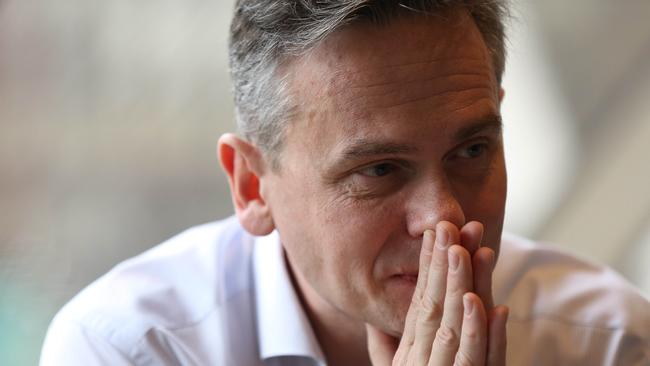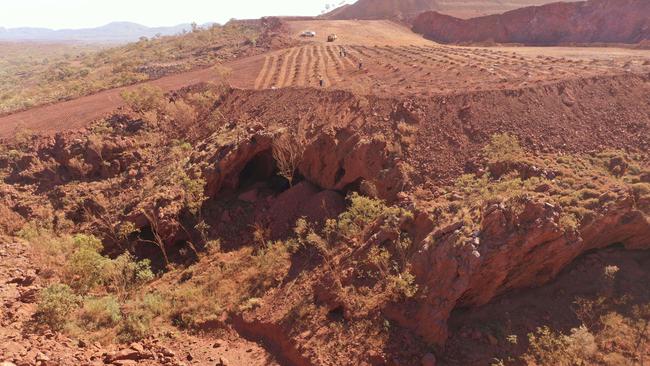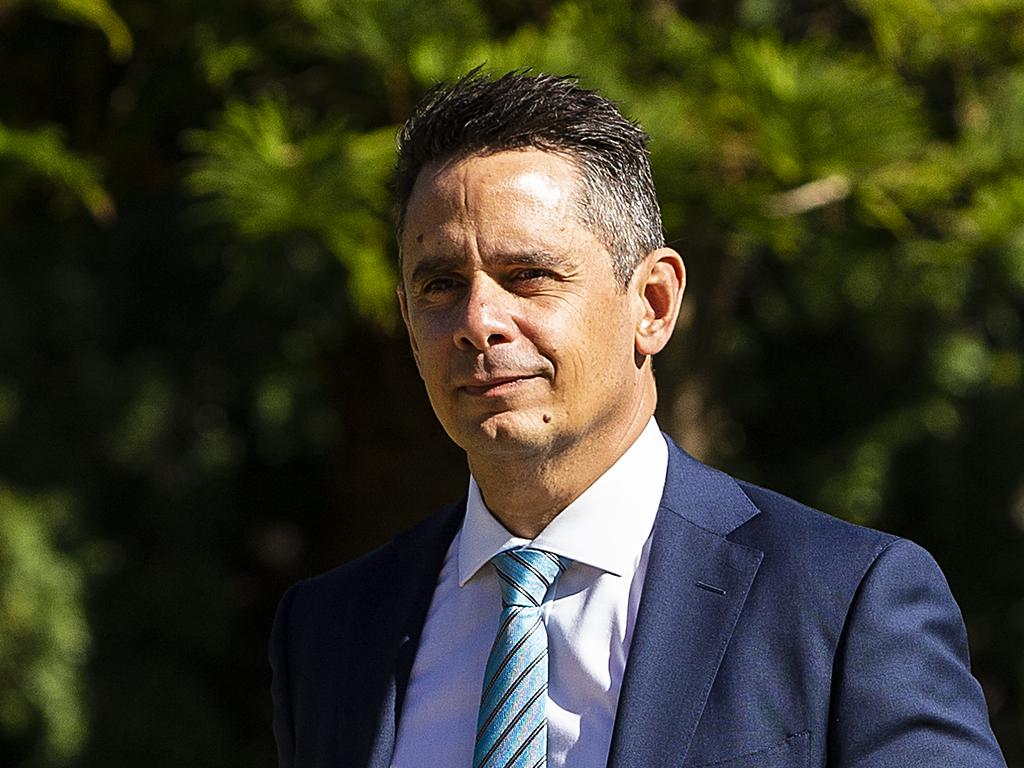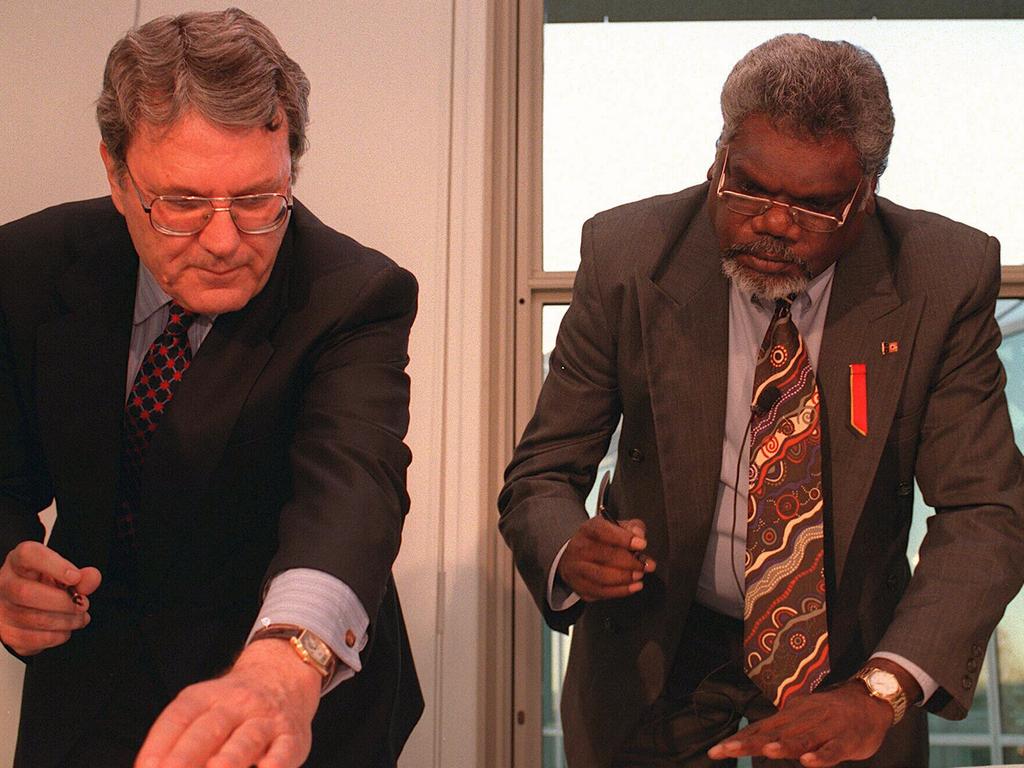Rio Tinto bosses lose bonuses over Juukan Gorge destruction
Rio Tinto’s CEO to forfeit about $5m over destruction of priceless archaeological site, but he’ll still lead the miner’s response.

Jean Sebastien Jacques is “absolutely” the right chief executive to help Rio Tinto recover its tarnished image in the wake of the Juukan Gorge debacle, according chairman Simon Thompson.
Rio’s decision to blow up a priceless archaeological site to access iron ore worth more than $US1bn ($1.4bn) at current prices will cost Mr Jacques about $5m in lost bonuses, but that will be the end of any action against him after a board review of the incident found “no single individual or error” was responsible for the destruction of the 46,000-year-old heritage site.
Mr Thompson told The Australian on Monday Mr Jacques was “absolutely” the right person to lead Rio’s response to the reputational disaster, pushing the primary blame for the decision-making back onto Rio’s previous leadership under Sam Walsh.

“The problems of Juukan really date back to 2013 onwards. There were missed opportunities throughout that period until 2020. There were certainly failings in the last four to five years. But in many respects the origins of this problem and the decisions taken on the mine plan were taken quite a long time ago,” he said.
Rio said the findings of its review would lead to the strengthening of its practices, work culture and governance around heritage issues, to ensure they “are accorded equivalent priority alongside safety and operational performance”.
Mr Jacques told a parliamentary inquiry into the debacle this month that Rio had originally applied for permission to mine the area containing the rock shelters in order to mine about 8 million tonnes of high-grade iron ore — worth about $US1bn at current iron ore prices.
The review did not outline the reasons for that decision, but blamed systemic failures over the past eight years for the eventual decision to destroy the site — including a breakdown in communication with the Puutu Kunti Kurrama and Pinikura (PKKP) peoples, the traditional owners of the Brockman mine where the blast occurred, and successive failures by the management of its iron ore division in ignoring archaeological reports pointing to the significance of the site.
The review also blamed flaws in its IT systems that created a “blind spot” around the site after legal permission to mine the area was granted. Communities and heritage staff were “challenged by the work demands placed upon them” and separated from division’s strategic planning decisions. The combination created a failure of “linked-up decision-making” at the company.
While its most senior management escaped any direct blame for the destruction of the sites, Rio said its board had decided to strip Mr Jacques, iron ore boss Chris Salisbury and corporate relations executive Simone Niven of performance-related bonuses for 2020, with Mr Jacques to also lose incentive shares worth £1m ($1.8m).
Based on 2018 figures, Mr Jacques will lose £2.7m worth of bonus payments, Ms Niven £525,000 and Mr Salisbury $1.1m.
Despite widespread criticism of Rio’s response to the disaster, and calls for the sacking of Mr Jacques, Mr Thompson told The Australian there was no suggestion any of the three should lose their jobs.
“In the case of JS, Simon Niven and Chris Salisbury, we remain convinced that had they been aware of the significance of Juukan, then they would have taken the necessary steps to prevent its destruction,” he said.
“But they were not aware. And of course they should have been. So their failings are really acts of omission rather than commission, in that they did fail to put in place a fit-for-purpose management and escalation system for cultural heritage.”
Mr Thompson said Rio’s board believed the current team were “absolutely” the right people to put in place new systems to ensure the decision was never repeated.
Australian Council of Superannuation Investors Chief executive Louise Davidson said the review offered “conflicting messages” by identifying management failings but finding senior executives only partially responsible.
Australian Centre for Corporate Responsibility strategy lead James Fitzgerald said the review was an “appalling indictment” on Rio’s approach to cultural heritage. “It amounts to little more than a public relations exercise that still attempts to blame the PKKP, previous Rio Tinto administrations and anyone else,” he said.
“Tens of thousands of years of cultural significance get blown up and all that goes to show for it is $7 million of lost remuneration. “
Rio shares gained 19c to close at $100.90 on Monday.






To join the conversation, please log in. Don't have an account? Register
Join the conversation, you are commenting as Logout